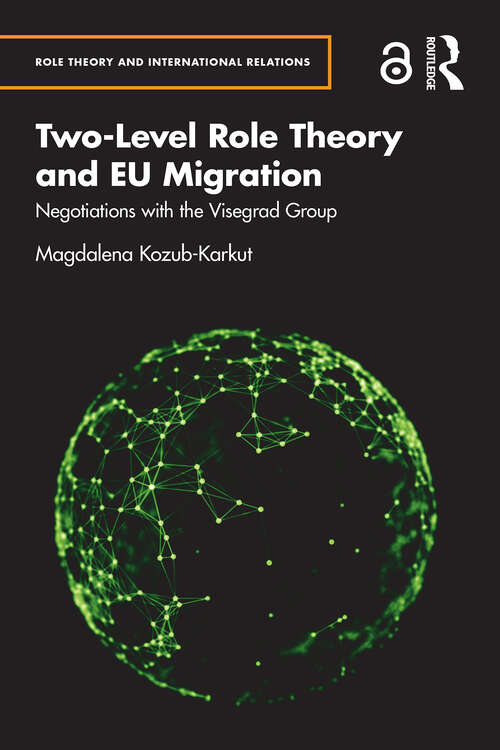Two-Level Role Theory and EU Migration: Negotiations with the Visegrad Group (1) (Role Theory and International Relations)
By:
Sign Up Now!
Already a Member? Log In
You must be logged into Bookshare to access this title.
Learn about membership options,
or view our freely available titles.
- Synopsis
- Applying role theory and Putnam’s two-level game framework to the European migration crisis of 2015, Magdalena Kozub-Karkut expertly shows how the Czech Republic, Slovakia, Hungary, and Poland used the crisis to contest their roles in the European Union (EU) and how each country and the V4, as a group, subsequently used their new contested roles in the bargaining process within the EU structures. In doing so, Kozub-Karkut demonstrates how international negotiations might be used by the chief negotiators as a way of triggering contestation and enhancing their position at the domestic level as well as how role contestation processes from the domestic level might be used at the international one.Two-Level Role Theory and EU Migration is an excellent resource for scholars and students of Foreign Policy Analysis, International Relations Theory, European Studies, and Migrations Studies.Chapter 3 and 7 of this book is freely available as a downloadable Open Access PDF at http://www.taylorfrancis.com under a Creative Commons Attribution-Non Commercial-No Derivatives (CC-BY-NC-ND) 4.0 license.
- Copyright:
- 2025
Book Details
- Book Quality:
- Publisher Quality
- Book Size:
- 206 Pages
- ISBN-13:
- 9781040296127
- Related ISBNs:
- 9781032786261, 9781003582656, 9781040296080
- Publisher:
- Taylor & Francis
- Date of Addition:
- 03/28/25
- Copyrighted By:
- Magdalena Kozub-Karkut
- Adult content:
- No
- Language:
- English
- Has Image Descriptions:
- No
- Categories:
- Nonfiction, Reference, Social Studies, Politics and Government
- Submitted By:
- Bookshare Staff
- Usage Restrictions:
- This is a copyrighted book.
